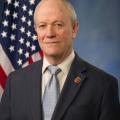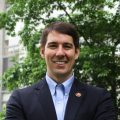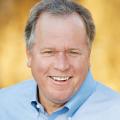15th Assembly District
Not in 15th Assembly District? Find your guide.
RETURN BALLOTS BY TUESDAY, MARCH 3RD
The Courage California Voter Guide compiles the information that allows you to make informed decisions about the races on your ballot, based on your values. Vote in every race on your ballot! It's our right and our responsibility. Please share this guide with your friends and family.
Have questions about voting in Contra Costa County? Find out how to vote in Contra Costa County.
Congress
8th Congressional District
Christine “Chris” Bubser is from Pennsylvania and has lived in Mammoth Lakes for over 13 years. According to campaign materials, she’s running for office to bring responsive representation to California’s 8th Congressional district.
Bubser is a biotech engineer and healthcare advocate. The 2017 attempts to dismantle the Affordable Care Act led her to advocate in Washington, and she decided to run for office after the indifference she experienced. In her community, Bubser is a trustee at her Temple and a co-founder of HODG (HangOutDoGood), a grassroots community of hundreds of volunteers who work to elect progressive candidates.
Bubser is running against nine other candidates: Bob Conaway (D), James Ellars (D), Tim Donnelly (R), Jerry Laws (R), Jay Obernolte (R), Jeremy Staat (R), Justin David Whitehead (R), Jeff Esmus (NPP). Incumbent Paul Cook (R) is not seeking re-election. Recent election results show it's hard for Democrats to win this seat. Chris Bubser is the best progressive choice thanks to endorsements from over a dozen progressive organizations, elected officials, and community leaders.
According to our analysis, Chris Bubser is the strongest choice for progressive leadership in office.
Christine “Chris” Bubser is from Pennsylvania and has lived in Mammoth Lakes for over 13 years. According to campaign materials, she’s running for office to bring responsive representation to California’s 8th Congressional district.
Bubser is a biotech engineer and healthcare advocate. The 2017 attempts to dismantle the Affordable Care Act led her to advocate in Washington, and she decided to run for office after the indifference she experienced. In her community, Bubser is a trustee at her Temple and a co-founder of HODG (HangOutDoGood), a grassroots community of hundreds of volunteers who work to elect progressive candidates.
Bubser is running against nine other candidates: Bob Conaway (D), James Ellars (D), Tim Donnelly (R), Jerry Laws (R), Jay Obernolte (R), Jeremy Staat (R), Justin David Whitehead (R), Jeff Esmus (NPP). Incumbent Paul Cook (R) is not seeking re-election. Recent election results show it's hard for Democrats to win this seat. Chris Bubser is the best progressive choice thanks to endorsements from over a dozen progressive organizations, elected officials, and community leaders.
According to our analysis, Chris Bubser is the strongest choice for progressive leadership in office.
9th Congressional District
Jerry McNerny is from New Mexico and has lived in California since 1990. He is the incumbent, having served in this position since 2007. According to campaign materials, he is running for re-election to continue to be an independent voice for the 9th District.
Jerry McNerney currently serves in the House of Representatives, where he has written and passed laws that include the better treatment of veterans returning home with traumatic brain injury, as well as improved training for new green jobs and increased investment in infrastructure for electric vehicles. He currently serves on the Committee on Energy and Commerce as well as the Committee on Science, Space and Technology. Prior to his election to Congress, he worked as a renewable energy engineer and founded a company that manufactures wind turbines.
Jerry McNerney has introduced a proposed amendment to the Constitution that would limit funding for candidates and ballot measures from direct donations from individual citizens, restrict campaign contributions, and essentially eliminate Political Action Committees.
Jerry McNerney is running against William Martinek (R) and Antonio Amador (R). According to recent election results, Democrats can win this seat but it's often a close race. Though we disagree with McNerney’s often punitive stances on immigration, as well as calls for increased funding for law enforcement and surveillance at the border, his position in Congress helps to advance progressive policies on issues such as climate change and makes him the strongest choice for in this race.
Jerry McNerny is from New Mexico and has lived in California since 1990. He is the incumbent, having served in this position since 2007. According to campaign materials, he is running for re-election to continue to be an independent voice for the 9th District.
Jerry McNerney currently serves in the House of Representatives, where he has written and passed laws that include the better treatment of veterans returning home with traumatic brain injury, as well as improved training for new green jobs and increased investment in infrastructure for electric vehicles. He currently serves on the Committee on Energy and Commerce as well as the Committee on Science, Space and Technology. Prior to his election to Congress, he worked as a renewable energy engineer and founded a company that manufactures wind turbines.
Jerry McNerney has introduced a proposed amendment to the Constitution that would limit funding for candidates and ballot measures from direct donations from individual citizens, restrict campaign contributions, and essentially eliminate Political Action Committees.
Jerry McNerney is running against William Martinek (R) and Antonio Amador (R). According to recent election results, Democrats can win this seat but it's often a close race. Though we disagree with McNerney’s often punitive stances on immigration, as well as calls for increased funding for law enforcement and surveillance at the border, his position in Congress helps to advance progressive policies on issues such as climate change and makes him the strongest choice for in this race.
10th Congressional District
Rep. Josh Harder lives in his hometown of Turlock, CA. He is the incumbent, having beat the sitting republican in a tight race in 2018, which helped Democrats to win back control of Congress. According to campaign materials, Harder is running for re-election to protect access to health care, create good-paying jobs, reform our broken immigration system, and to secure and grow his area’s water supply.
In Congress, Rep. Harder has advocated for the needs of the agriculture industry by addressing issues of climate change, and has fought to support California’s farmers. Rep. Harder currently sits on the House Committees on Education and Labor, as well as the Agriculture Committee. Prior to serving in congress, Harder was a business professor at Modesto Junior College. Harder has also passed on his small business knowledge to developing economies through volunteer efforts. While working at Boston Consulting Group, he took a leave of absence to help small farmers in Kenya and Uganda organize for economic cooperation and development.
Rep. Harder is running against Michael “Mike” Barkley (D), Ryan Blevins (D), Bob Elliot (R), Maria Sousa Livengood (R), and Ted Howze (R). According to recent election results, it's difficult for Democrats to win this seat as Rep. Harder did in 2018. His strong progressive track record as well as his recent win in a recently flipped district make him the strongest choice in this race.
Rep. Josh Harder lives in his hometown of Turlock, CA. He is the incumbent, having beat the sitting republican in a tight race in 2018, which helped Democrats to win back control of Congress. According to campaign materials, Harder is running for re-election to protect access to health care, create good-paying jobs, reform our broken immigration system, and to secure and grow his area’s water supply.
In Congress, Rep. Harder has advocated for the needs of the agriculture industry by addressing issues of climate change, and has fought to support California’s farmers. Rep. Harder currently sits on the House Committees on Education and Labor, as well as the Agriculture Committee. Prior to serving in congress, Harder was a business professor at Modesto Junior College. Harder has also passed on his small business knowledge to developing economies through volunteer efforts. While working at Boston Consulting Group, he took a leave of absence to help small farmers in Kenya and Uganda organize for economic cooperation and development.
Rep. Harder is running against Michael “Mike” Barkley (D), Ryan Blevins (D), Bob Elliot (R), Maria Sousa Livengood (R), and Ted Howze (R). According to recent election results, it's difficult for Democrats to win this seat as Rep. Harder did in 2018. His strong progressive track record as well as his recent win in a recently flipped district make him the strongest choice in this race.
State Assembly, 15th District
Buffy Wicks was raised in rural California and permanently moved to Oakland in 2016. She is the incumbent, having served in this position since 2019. According to campaign materials she is running for re-election because she is a lifelong Californian and a former grassroots organizer who wants to use her federal and local experience to continue to fight for equity and economic security in the region.
In the State Assembly, Wicks has introduced a renter’s protection bill, championed consumer protections, authored a bill to reestablish California's Healthy Start program to connect children and families with critical services, and joined a gun violence prevention working group. Wicks serves on five Assembly committees, including Budget, Public Safety, Banking and Finance, Privacy and Consumer Protection, and Rules. Prior to her election to the State Assembly, Wicks campaigned for Howard Dean, and ran field operations for Barack Obama in 2008 and 2012. Wicks served as the Deputy Director of the White House Office of Public Engagement during the Obama Administration and worked to advocate for the Affordable Care Act. After leaving the White House, Wicks was a Senior Fellow at the Center for American Progress where she focused much of her work on seeking innovative ways to establish economic security for women and families.
Wicks is being challenged by Sara Brink (NPP) and Jeanne Solnordal (R). In 2019, she scored a 100 out of 100 on Courage Score, our annual analysis of legislator's progressive voting records. Based on our Courage Score analysis, Wicks has consistently shown great courage in advocating for the needs of constituents and facing down corporate lobbyists and interest groups that exploit Californians.
According to our analysis, Buffy Wicks is the strongest choice for progressive leadership in office.
Buffy Wicks was raised in rural California and permanently moved to Oakland in 2016. She is the incumbent, having served in this position since 2019. According to campaign materials she is running for re-election because she is a lifelong Californian and a former grassroots organizer who wants to use her federal and local experience to continue to fight for equity and economic security in the region.
In the State Assembly, Wicks has introduced a renter’s protection bill, championed consumer protections, authored a bill to reestablish California's Healthy Start program to connect children and families with critical services, and joined a gun violence prevention working group. Wicks serves on five Assembly committees, including Budget, Public Safety, Banking and Finance, Privacy and Consumer Protection, and Rules. Prior to her election to the State Assembly, Wicks campaigned for Howard Dean, and ran field operations for Barack Obama in 2008 and 2012. Wicks served as the Deputy Director of the White House Office of Public Engagement during the Obama Administration and worked to advocate for the Affordable Care Act. After leaving the White House, Wicks was a Senior Fellow at the Center for American Progress where she focused much of her work on seeking innovative ways to establish economic security for women and families.
Wicks is being challenged by Sara Brink (NPP) and Jeanne Solnordal (R). In 2019, she scored a 100 out of 100 on Courage Score, our annual analysis of legislator's progressive voting records. Based on our Courage Score analysis, Wicks has consistently shown great courage in advocating for the needs of constituents and facing down corporate lobbyists and interest groups that exploit Californians.
According to our analysis, Buffy Wicks is the strongest choice for progressive leadership in office.
State Senate
State Senator, 3rd District
Senator Bill Dodd (D) is the incumbent, having served as Senator for the district since 2013. Based on our Courage Score analysis, Senator Dodd has shown that he does NOT advocate for the needs of constituents or face down corporate lobbyists and interest groups that exploit Californians. Dodd scored a shocking 57 out of 100 on this year’s Courage Score, our annual analysis of a legislator's progressive voting records.
Senator Dodd is running unopposed. Courage California encourages you to write in a candidate of your choice to show support for progressives in this district. Keep reading for progressive recommendations in other key races and on ballot measures where your vote can make a critical difference.
Senator Bill Dodd (D) is the incumbent, having served as Senator for the district since 2013. Based on our Courage Score analysis, Senator Dodd has shown that he does NOT advocate for the needs of constituents or face down corporate lobbyists and interest groups that exploit Californians. Dodd scored a shocking 57 out of 100 on this year’s Courage Score, our annual analysis of a legislator's progressive voting records.
Senator Dodd is running unopposed. Courage California encourages you to write in a candidate of your choice to show support for progressives in this district. Keep reading for progressive recommendations in other key races and on ballot measures where your vote can make a critical difference.
State Senator, 7th District
Marisol Rubio is a second-generation American, raised by a single mother who was a public school teacher. She now lives in San Ramon with her daughter. According to campaign materials, Rubio is running to fight for accountability from our legislature, and to demand that our biggest and wealthiest corporations pay their fair share so we can provide the support blue-collar, working people of California deserve.
Rubio is a scientific researcher, health care provider, and advocate for high-need students. Her passion for science and discovery was fueled by her personal experiences as a young single mother of a chronically-ill disabled daughter who is an early childhood brain cancer survivor. As she explored solutions to support her own daughter’s health and wellbeing, Rubio came to understand how we can best support families experiencing hardships through the advancement of innovative and proven healthcare, educational, and socioeconomic policies.
Rubio also brings a strong track record and relationships in progressive politics and public service. As Co-Chair of the Democratic Party of Contra Costa County Issues Committee, Rubio has co-authored two resolutions that were adopted by the California Democratic Party and helped pass several progressive bills and resolutions including the Green New Deal for California, a call for a Climate focused Presidential Debate, and support for the public banking movement, which gives localities the ability to open banks to serve residents not well served by traditional banks. She has also served as an elected delegate to the Democratic National Convention and is an SEIU Local 2015 member.
Rubio is challenging incumbent Steve Glazer (D), who has consistently opposed progressive priorities by siding with corporate lobbyists and failing his constituents on criminal and juvenile justice reform and healthcare. Other candidates include Julie Mobley (R). Rubio is the strongest choice because of her track record as a champion for the disabled community and their caretakers, and as an advocate for her region’s priorities in the Democratic Party.
Voting for Rubio is an opportunity to elect a legislator who will accurately represent the perspective and priorities of her district in Congress. Courage California strongly endorses Marisol Rubio for Congress.
Marisol Rubio is a second-generation American, raised by a single mother who was a public school teacher. She now lives in San Ramon with her daughter. According to campaign materials, Rubio is running to fight for accountability from our legislature, and to demand that our biggest and wealthiest corporations pay their fair share so we can provide the support blue-collar, working people of California deserve.
Rubio is a scientific researcher, health care provider, and advocate for high-need students. Her passion for science and discovery was fueled by her personal experiences as a young single mother of a chronically-ill disabled daughter who is an early childhood brain cancer survivor. As she explored solutions to support her own daughter’s health and wellbeing, Rubio came to understand how we can best support families experiencing hardships through the advancement of innovative and proven healthcare, educational, and socioeconomic policies.
Rubio also brings a strong track record and relationships in progressive politics and public service. As Co-Chair of the Democratic Party of Contra Costa County Issues Committee, Rubio has co-authored two resolutions that were adopted by the California Democratic Party and helped pass several progressive bills and resolutions including the Green New Deal for California, a call for a Climate focused Presidential Debate, and support for the public banking movement, which gives localities the ability to open banks to serve residents not well served by traditional banks. She has also served as an elected delegate to the Democratic National Convention and is an SEIU Local 2015 member.
Rubio is challenging incumbent Steve Glazer (D), who has consistently opposed progressive priorities by siding with corporate lobbyists and failing his constituents on criminal and juvenile justice reform and healthcare. Other candidates include Julie Mobley (R). Rubio is the strongest choice because of her track record as a champion for the disabled community and their caretakers, and as an advocate for her region’s priorities in the Democratic Party.
Voting for Rubio is an opportunity to elect a legislator who will accurately represent the perspective and priorities of her district in Congress. Courage California strongly endorses Marisol Rubio for Congress.
State Senator, 9th District
Nancy Skinner has lived in Berkley, CA for over 40 years. She is the incumbent State Senator in District 9, having served in this position since 2017. According to campaign materials, she is running for re-election to continue to build on her record of fighting for criminal justice reform, affordable housing, and increased environmental protections across the state.
In the State Senate, Skinner has authored two significant criminal justice reform bills to increase police accountability and overhaul the felony murder rule. She has also authored legislation to improve California’s affordable housing shortage, and to protect the environment through the reduction of greenhouse gas emissions. Skinner currently serves as the Chair of the Public Safety Committee and the Public Safety Budget Committee, and is a member of an additional six committees. Prior to her election to the State Senate, Skinner served three terms in the State Assembly, was the first student to be elected to the Berkeley City Council, and served as the Executive Director of ICLEI’s United States office which worked with international cities to stop climate change. As a graduate Student at Berkeley, Skinner co-founded the labor union that represents graduate student instructors.
Nancy Skinner is running unopposed in this race. She scores a lifetime 97 out of 100 on Courage Score, our annual analysis of legislators’ progressive voting record. Based on our Courage Score analysis, Skinner has consistently shown great courage by advocating for the needs of constituents and facing down corporate lobbyists and interest groups that exploit Californians.
According to our analysis, Nancy Skinner is the strongest choice for progressive leadership in office.
Nancy Skinner has lived in Berkley, CA for over 40 years. She is the incumbent State Senator in District 9, having served in this position since 2017. According to campaign materials, she is running for re-election to continue to build on her record of fighting for criminal justice reform, affordable housing, and increased environmental protections across the state.
In the State Senate, Skinner has authored two significant criminal justice reform bills to increase police accountability and overhaul the felony murder rule. She has also authored legislation to improve California’s affordable housing shortage, and to protect the environment through the reduction of greenhouse gas emissions. Skinner currently serves as the Chair of the Public Safety Committee and the Public Safety Budget Committee, and is a member of an additional six committees. Prior to her election to the State Senate, Skinner served three terms in the State Assembly, was the first student to be elected to the Berkeley City Council, and served as the Executive Director of ICLEI’s United States office which worked with international cities to stop climate change. As a graduate Student at Berkeley, Skinner co-founded the labor union that represents graduate student instructors.
Nancy Skinner is running unopposed in this race. She scores a lifetime 97 out of 100 on Courage Score, our annual analysis of legislators’ progressive voting record. Based on our Courage Score analysis, Skinner has consistently shown great courage by advocating for the needs of constituents and facing down corporate lobbyists and interest groups that exploit Californians.
According to our analysis, Nancy Skinner is the strongest choice for progressive leadership in office.
Contra Costa County, District 3
Depending on where you live, you may have the below county-districted races on your ballot.
Diane Burgis lives in Oakley with her family and has lived in Contra Costa County for most of her life. She has served as the Supervisor for District 3 for three years. According to campaign materials she is running for re-election to continue advocating for responsible environmental stewardship, improved transportation infrastructure, and effective delivery of county services.
As the Supervisor for the County’s largest geographic district, Diane serves on over two dozen committees including the 2020 Census, the Delta Protection Commission, and the Contra Costa County Family Justice Center. Before her election to the Contra Costa County Board of Supervisors, she served in the East Bay Regional Park District as the Ward 7 Director. While there, she managed a $205 million budget for over 120,000 acres in both Alameda and Contra Costa County.
Diane Burgis is running against Paul Seger, who serves on the Board of Directors for the Diablo Water Project. Despite Paul Seger’s seemingly progressive agenda, Diane Burgis' notable strong support from local officials and organizations make her the stronger candidate.
According to our analysis, Diane Burgis is the strongest choice for progressive leadership in office.
Diane Burgis lives in Oakley with her family and has lived in Contra Costa County for most of her life. She has served as the Supervisor for District 3 for three years. According to campaign materials she is running for re-election to continue advocating for responsible environmental stewardship, improved transportation infrastructure, and effective delivery of county services.
As the Supervisor for the County’s largest geographic district, Diane serves on over two dozen committees including the 2020 Census, the Delta Protection Commission, and the Contra Costa County Family Justice Center. Before her election to the Contra Costa County Board of Supervisors, she served in the East Bay Regional Park District as the Ward 7 Director. While there, she managed a $205 million budget for over 120,000 acres in both Alameda and Contra Costa County.
Diane Burgis is running against Paul Seger, who serves on the Board of Directors for the Diablo Water Project. Despite Paul Seger’s seemingly progressive agenda, Diane Burgis' notable strong support from local officials and organizations make her the stronger candidate.
According to our analysis, Diane Burgis is the strongest choice for progressive leadership in office.
Statewide Ballot Measures
This proposition would provide $9 billion for desperately needed renovations to public preschools and grade schools throughout the state, and $6 billion for construction to community colleges, the Cal State system, and the UC system. This will allow the state of California to use tax revenue to pay for improvements that local communities cannot afford.
The funding would come from bonds the state would pay back over 35 years, totaling an estimated $26 billion, which includes $15 billion in principal and $11 billion in interest. This investment is well worth the costs. It takes money, after all, to ensure that students -- especially those in districts that can’t afford major capital improvement projects -- do not have to learn in dangerous environments.
The vast majority of Democrats in the state legislature support it, as does Gov. Newsom, and the only major opposition is a group called the Howard Jarvis Taxpayers Association. This is the group famous for destroying California’s school funding system in 1978 through another proposition, ironically one that was also dubbed Prop 13. The group spends most of its time lobbying to reduce tax rates. It has never shown any interest in supporting California’s children, at least if that means wealthy individuals or giant corporations would pay their fair share in taxes.
Critics of the measure have pointed out that the ballot measure’s language includes a provision that frees new multi-family developments around subway stops and bus stations from school impact fees. This provision will make it easier for developers to build apartment buildings within a half-mile of public transit but could also drive up the cost of new housing and take funds away from school districts across the state. Despite this provision, the measure is still supported by most education groups in the state, who believe the overall funding allocation to schools outweighs the impact of reduced funding to school districts located near transit hubs. 2020’s Prop 13 is worth the investment since it means children will soon be able to attend school in buildings that are retrofitted to withstand earthquakes and no longer have lead in their water.
We strongly recommend a YES vote on Prop 13.
This proposition would provide $9 billion for desperately needed renovations to public preschools and grade schools throughout the state, and $6 billion for construction to community colleges, the Cal State system, and the UC system. This will allow the state of California to use tax revenue to pay for improvements that local communities cannot afford.
The funding would come from bonds the state would pay back over 35 years, totaling an estimated $26 billion, which includes $15 billion in principal and $11 billion in interest. This investment is well worth the costs. It takes money, after all, to ensure that students -- especially those in districts that can’t afford major capital improvement projects -- do not have to learn in dangerous environments.
The vast majority of Democrats in the state legislature support it, as does Gov. Newsom, and the only major opposition is a group called the Howard Jarvis Taxpayers Association. This is the group famous for destroying California’s school funding system in 1978 through another proposition, ironically one that was also dubbed Prop 13. The group spends most of its time lobbying to reduce tax rates. It has never shown any interest in supporting California’s children, at least if that means wealthy individuals or giant corporations would pay their fair share in taxes.
Critics of the measure have pointed out that the ballot measure’s language includes a provision that frees new multi-family developments around subway stops and bus stations from school impact fees. This provision will make it easier for developers to build apartment buildings within a half-mile of public transit but could also drive up the cost of new housing and take funds away from school districts across the state. Despite this provision, the measure is still supported by most education groups in the state, who believe the overall funding allocation to schools outweighs the impact of reduced funding to school districts located near transit hubs. 2020’s Prop 13 is worth the investment since it means children will soon be able to attend school in buildings that are retrofitted to withstand earthquakes and no longer have lead in their water.
We strongly recommend a YES vote on Prop 13.







